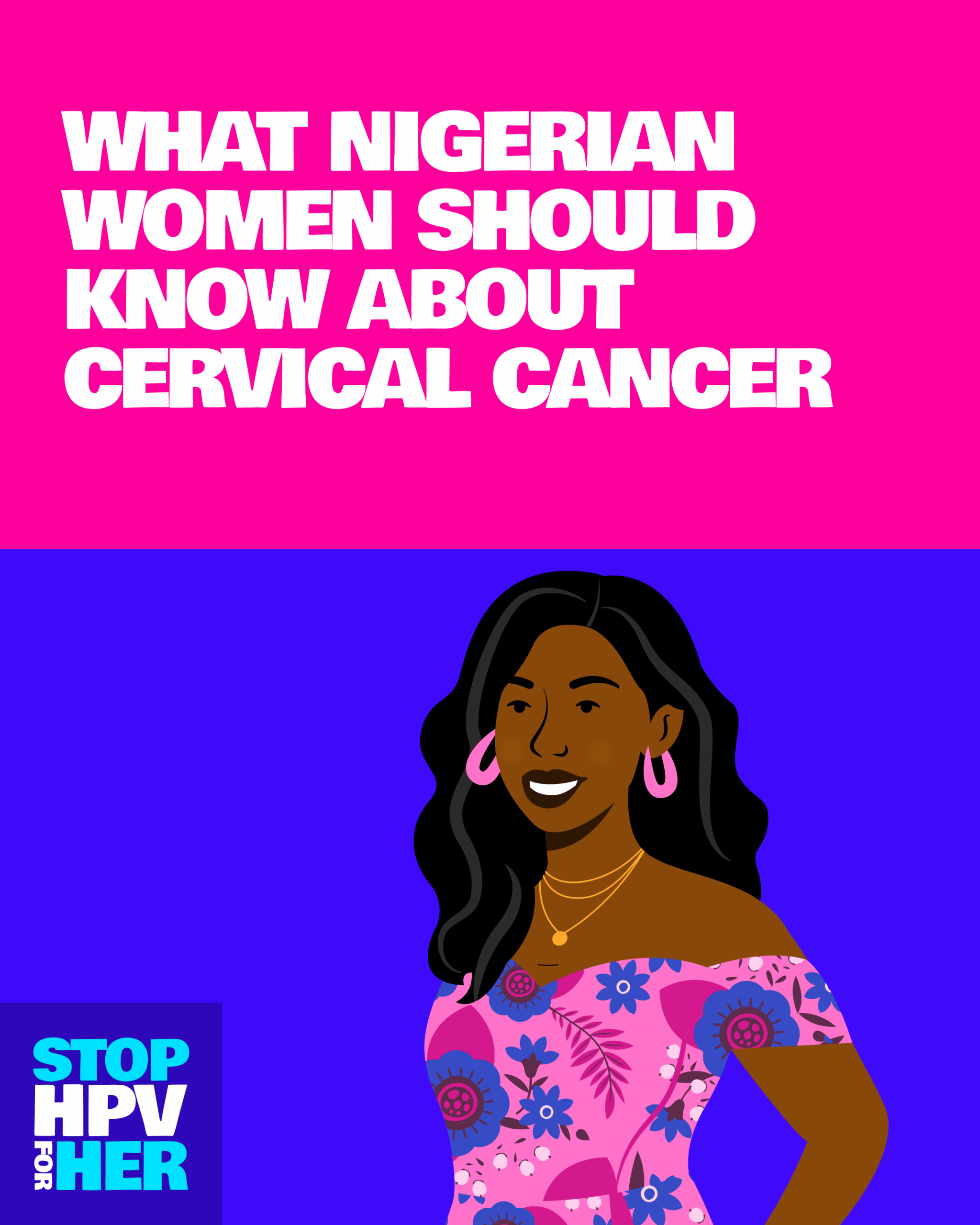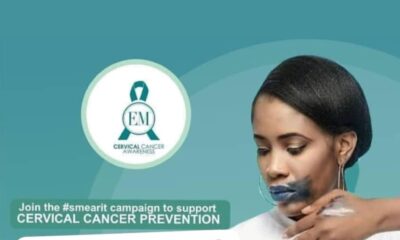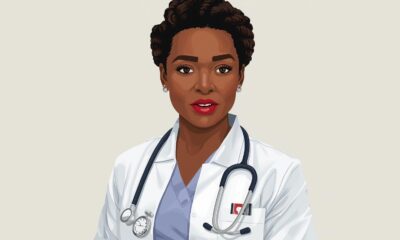Features
#StopHPVForHer: What Nigerian Women Should Know About Cervical Cancer
This article has been culled and adapted from Healthtracka

Let’s talk about something that doesn’t get nearly enough attention but affects thousands of Nigerian women every year. Human Papillomavirus, or HPV, is the leading cause of cervical cancer. The tricky part is that many people who have HPV show no symptoms at all, which is why awareness and prevention are so important.
Now, here’s where it gets serious. While most HPV infections clear up on their own, about 10% of women with HPV infection on their cervix will develop long-lasting infections that put them at risk for cervical cancer. In Nigeria, cervical cancer is the second most common cancer among women, which makes understanding and preventing it absolutely crucial.
Cervical cancer is highly preventable. In women with healthy immune systems, it takes 15 to 20 years for cervical cancer to develop from an HPV infection, which allows a significant window of time for prevention and early detection to work their magic.
The Power of Vaccination
This is where HPV vaccines come in as game-changers. These vaccines protect against the specific strains of HPV most likely to cause cancer. All HPV vaccines protect against HPV types 16 and 18, which are responsible for most cervical cancers. According to estimates, HPV vaccines may prevent more than 70% of cervical cancers, along with significant percentages of other HPV-related cancers.
The World Health Organisation recommends that HPV vaccines be included in all countries’ routine immunisation programmes. In Nigeria, the vaccine is now part of the national immunisation schedule and is free for girls aged 9. Vaccination is typically recommended for girls between the ages of 9 and 13, and the protection lasts for at least five to ten years.
For those wondering about older age groups, vaccination is generally not recommended for anyone beyond the age of 26. However, some individuals aged 27 to 45 who haven’t been vaccinated may choose to do so after discussing their risk with a healthcare provider. The benefit is lower in this age range because more people have already been exposed to HPV.
Do the Vaccines Actually Work?
Absolutely. Research has shown that HPV vaccines can prevent more than 90% of HPV-related cancers. Since 2006, HPV vaccines have reduced the occurrence of HPV-related cancers and genital warts by 88%. Pre-cancerous changes in young women have dropped drastically, and studies show that people remain protected even 12 years after vaccination.
As with any vaccine, there can be mild side effects. About 80% of people experience pain at the injection site, while others report redness, swelling, or mild fever. Some people have mentioned tiredness, headaches, or brief dizziness, but these are temporary and far outweigh the life-saving benefits.
Beyond Vaccination: The Importance of Screening
Vaccination is incredibly important, but it’s not the only tool we have. Regular screening remains one of the best ways to catch cervical changes early, long before they develop into cancer. This is especially crucial for women who weren’t vaccinated as adolescents or who are beyond the typical vaccination age.
Screening options include Pap smears, HPV tests, and visual inspection methods. According to HealthTracka, self-test kits have also become available, offering women a private and convenient way to collect samples at home and send them to a lab for analysis. The privacy and convenience of such options can be particularly helpful for women who might feel hesitant about discussing their sexual health or who have limited access to healthcare facilities.
For more detailed information about screening methods, including Pap smears and HPV tests, check out our comprehensive FAQ article on HPV and cervical cancer.
Taking Charge of Your Health
The conversation around HPV and cervical cancer doesn’t have to be scary or uncomfortable. It’s simply about being informed and taking practical steps to protect yourself. Whether that’s getting your daughter vaccinated, scheduling regular screenings, or having open conversations with your healthcare provider, every action counts.
Remember, cervical cancer is almost entirely preventable when we combine vaccination with regular screening. The 15 to 20-year window between HPV infection and cancer development gives us plenty of time to act. The question isn’t whether we can prevent cervical cancer, it’s whether we will take the steps to do so.
If you have more questions about HPV, cervical cancer, or screening options, our detailed FAQ article covers everything you need to know. Because when it comes to your health, knowledge truly is power, and action is love.





















